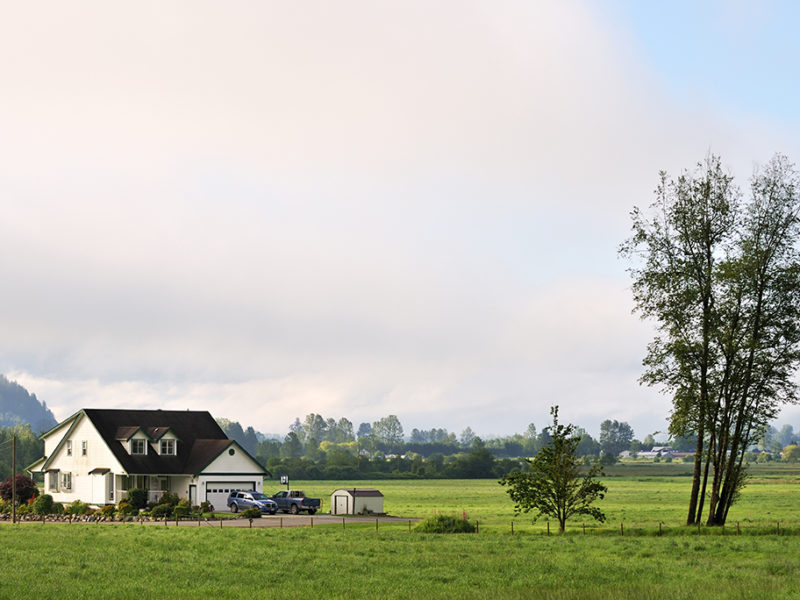The province has ended more than two years of uncertainty for property owners in the Agricultural Land Reserve by allowing them to have a secondary residence without seeking permission from the Agricultural Land Commission.
“The new residential flexibility will provide ALR property owners with the relief of housing security,” said Meghan McPherson, a Comox Valley landowner who rallied support for the change. “Not everyone will be pleased with the residential flexibility updates but I am satisfied with the outcome.”
On parcels of 40 hectares (99 acres) or less, the new regulations allow landowners to build a second residence of 90 square metres (970 square feet) or less if the primary residence is l,500 square metres (5,400 square feet). If the existing residence is larger than 5,400 square feet, then landowners must continue to apply to the ALC.
On parcels larger than 40 hectares, a second residence of 186 square metres (2,000 square feet) or less is permitted. The size of the primary residence does not matter.
Secondary residences can include garden suites, guest houses or carriage suites; accommodation above an existing building; and manufactured homes. These are consistent with the possibilities outlined in an intentions paper the province published regarding the changes in 2020, prior to the pandemic.
The changes follow publication of a factsheet in April that outlined the proposed changes without saying when they would take effect. However, it extended the temporary provision for manufactured homes until December 31, 2021, leaving many landowners wondering if secondary homes would be delayed yet again.
The latest announcement clears up the confusion, which has existed since February 2019, when a new regulation giving force and effect to Bill 52, passed in 2018, was unveiled. Sprung without notice on property owners, it was designed to support farming but effectively outlawed most forms of secondary residences.
Many landowners were in the process of securing manufactured homes for their properties believing that Bill 52 would allow them. But they weren’t. Worse, many property owners found that existing secondary dwellings were uninsurable because the new regulations prohibited them from being rebuilt in the event of loss. This also reduced their borrowing capacity.
BC agriculture minister Lana Popham said the new provisions will address those issues, and give small-lot farmers the support they need.
“Our government’s goal from the outset has been to protect farmland for future generations, so British Columbians can have a secure local food system and our communities can prosper,” said BC agriculture minister Lana Popham in announcing the changes. “We recognize the unique needs of established farming families, those new to farming and those living in the ALR who don’t farm.”
However, agriculture critic Ian Paton, MLA for Delta South, says government should have listened to farmers when drafting the changes back in 2018.
“The fact is, they didn’t consult on Bill 52 in the first place and rammed through legislation that didn’t work for farmers,” he said. “Then, after they got backlash, they dragged farmers through three years’ worth of reviews and feedback exercises that destroyed their dreams and cost them precious time and money.”


 Islands Trust defers policy statement
Islands Trust defers policy statement